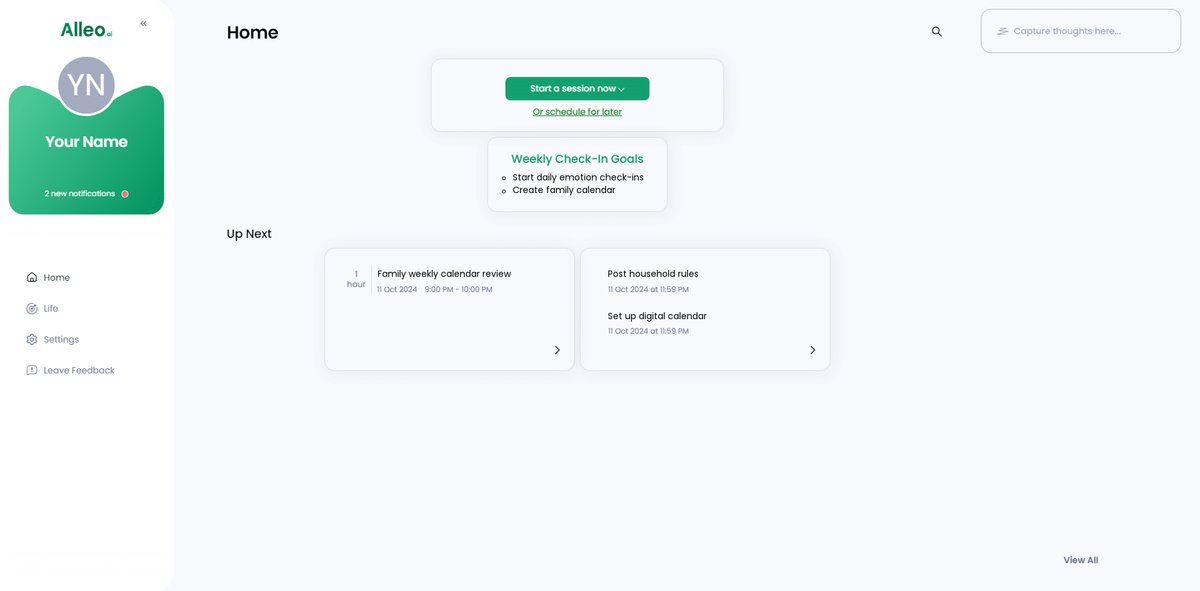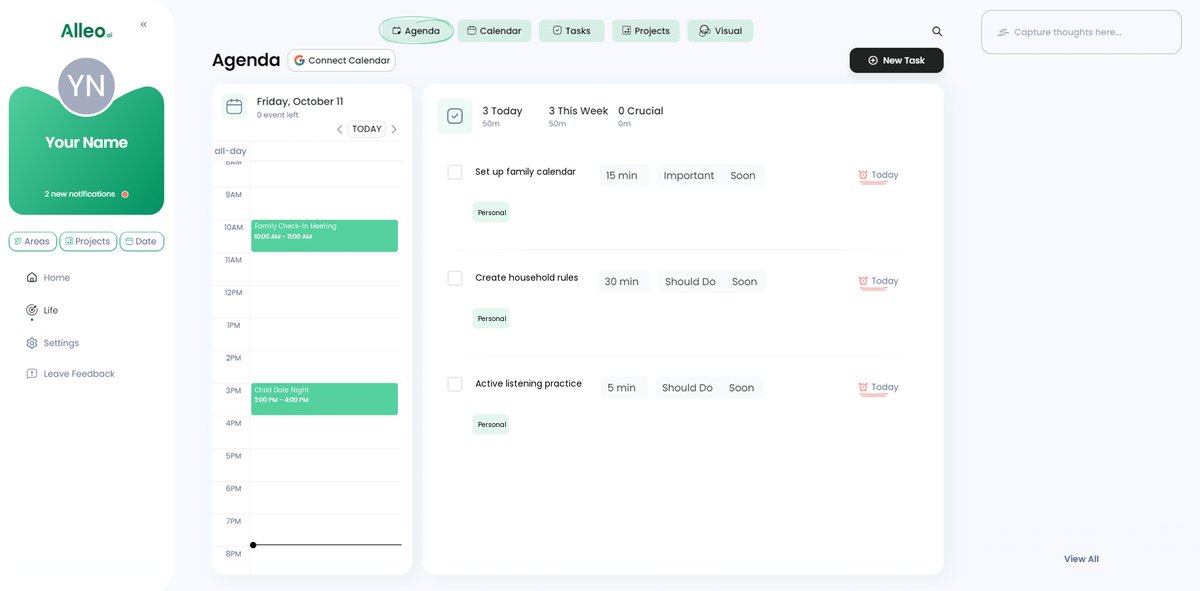5 Proven Strategies for Parents: Balancing Emotional and Practical Childcare Needs
Are you struggling to balance your child’s emotional needs with the daily practical demands of parenting? Balancing emotional and practical parenting can be a challenging task for many families.
As a life coach, I’ve helped many busy parents navigate these challenges. I understand the immense pressure to provide both emotional support and manage everyday tasks while maintaining work-life balance for parents.
In this article, you’ll discover practical strategies to seamlessly integrate emotional support into your daily routine. From creating a family calendar to practicing active listening, these tips will empower you to foster a balanced and nurturing environment for your children. We’ll explore practical parenting tips and family communication strategies that support child emotional development while managing parenting stress.
Let’s dive in and explore how to effectively balance emotional and practical parenting.
Understanding the Depth of the Problem
Balancing emotional and practical parenting can be overwhelming. Stress, lack of time, and feelings of being overwhelmed are common among parents struggling with work-life balance.
These challenges can lead to emotional difficulties for both you and your child. For instance, without enough support for child emotional development, children might experience anxiety or behavioral issues.
I often see clients benefit from structured routines and emotional check-ins as practical parenting tips. Yet, implementing these strategies can feel daunting when you’re already stretched thin with childcare time management.
In my experience, creating a balanced approach to emotional and practical parenting is essential. Strive to integrate emotional support seamlessly into your daily life while incorporating self-care for parents.

Key Steps to Balance Emotional and Practical Childcare Needs
Overcoming this challenge of balancing emotional and practical parenting requires a few key steps. Here are the main areas to focus on to make progress:
- Create a Daily Emotional Check-In Routine: Set aside time each day to discuss feelings and emotions, supporting child emotional development.
- Implement a Family Calendar for Organization: Use a shared calendar to track activities and responsibilities, improving time management in childcare.
- Practice Active Listening During Daily Tasks: Engage in focused listening while performing routine tasks, enhancing family communication strategies.
- Establish Clear Boundaries and Expectations: Communicate household rules and create consistent routines, incorporating positive discipline techniques.
- Designate Quality Time for Each Child Daily: Spend individual time with each child to strengthen bonds, balancing multiple children’s needs.
Let’s dive in to these practical parenting tips!
1: Create a daily emotional check-in routine
Creating a daily emotional check-in routine is crucial for balancing emotional and practical parenting needs, helping parents manage parenting stress and support child emotional development.
Actionable Steps:
- Set aside 10 minutes each evening for a family check-in. Track participation and engagement in a journal, improving family communication strategies.
- Introduce emotion charts or flashcards to help children express their feelings. Monitor their ability to identify and articulate emotions, fostering a nurturing home environment.
- Use open-ended questions to encourage sharing. Start with short sessions and gradually increase as needed, aiding in balancing multiple children’s needs.
Explanation: These steps matter because they help integrate emotional support into your daily routine, making it a natural part of family life and improving work-life balance for parents.
According to Riaz Counseling, consistent emotional check-ins can reduce anxiety and stress in children, fostering a healthier family dynamic and supporting practical parenting tips.
This routine can be a powerful tool for building emotional resilience in your children while balancing emotional and practical parenting responsibilities.

2: Implement a family calendar for organization
Using a family calendar can streamline your daily tasks and keep everyone on the same page, helping with balancing emotional and practical parenting needs.
Actionable Steps:
- Set up a digital calendar that syncs with all family members. This ensures everyone is aware of upcoming activities and responsibilities, aiding in time management in childcare.
- Color-code activities for each family member to quickly see who has what on their schedule, supporting work-life balance for parents.
- Review the calendar weekly to ensure all tasks are accounted for. Hold a brief family meeting every Sunday evening to discuss the week ahead, enhancing family communication strategies.
The benefits of using a family calendar include:
- Improved time management
- Reduced scheduling conflicts
- Better communication among family members
Explanation: These steps matter because they help reduce chaos and improve time management for busy parents. According to Week Plan, creating a family calendar can significantly ease stress and allow for better organization.
This approach enables you to balance emotional and practical parenting needs effectively.
Having a clear schedule helps you allocate time for both tasks and family bonding, making your life more manageable and supporting child emotional development.

3: Practice active listening during daily tasks
To balance emotional and practical parenting needs, practicing active listening during daily tasks is essential.
Actionable Steps:
- Engage in active listening during car rides or meal prep. Repeat back what your child says to show understanding, supporting child emotional development.
- Set aside 5 minutes of undivided attention for each child daily. Use bedtime or walks for these one-on-one conversations, helping with balancing multiple children’s needs.
- Use reflective listening techniques. This helps improve communication and understanding during routine tasks, enhancing family communication strategies.
Explanation: These steps matter because they help integrate emotional support into everyday activities without adding extra time commitments, aiding in parenting stress management and work-life balance for parents.
According to Celebree School, engaging in active listening can foster better communication and emotional connection within your family.
This approach ensures that your child’s emotional needs are met, even during busy times, supporting the balance between emotional and practical parenting.
Practicing active listening can transform routine tasks into meaningful moments of connection, contributing to creating nurturing home environments.

4: Establish clear boundaries and expectations
Setting clear boundaries and expectations is crucial for creating a structured and harmonious family environment, which is essential when balancing emotional and practical parenting.
Actionable Steps:
- Define household rules and post them visibly. Write down key rules and place them in a common area for everyone to see, supporting practical parenting tips.
- Review and adjust rules regularly. Hold a family meeting once a month to discuss and update the rules as needed, enhancing family communication strategies.
- Involve children in creating the rules. This ensures they feel included and understand the importance of each rule, promoting child emotional development support.
Key elements of effective boundaries include:
- Consistency in enforcement
- Age-appropriate expectations
- Clear consequences for rule-breaking
Explanation: Establishing clear boundaries helps children understand expectations and fosters a sense of security, which is crucial for balancing emotional and practical parenting.
According to Ohio Department of Education, consistent routines and rules can improve overall family well-being. This approach enables you to manage both emotional and practical needs effectively, contributing to work-life balance for parents.
By setting clear boundaries, you create a predictable environment that supports both your needs and those of your children, aiding in parenting stress management and creating nurturing home environments.

5: Designate quality time for each child daily
Designating quality time for each child daily is essential for balancing emotional and practical parenting, building strong, individual bonds and ensuring emotional support.
Actionable Steps:
- Schedule 15 minutes daily for one-on-one time with each child. Use this time for simple activities like reading or playing a game, supporting child emotional development.
- Rotate special “date” nights with each child weekly. Plan a special outing or activity they enjoy and let them choose the activity, helping with balancing multiple children’s needs.
- Integrate quality time into routines by finding natural moments, such as before bed or during a walk. This ensures consistency without extra time commitments, aiding in time management in childcare.
Ways to make quality time meaningful:
- Focus on your child’s interests
- Practice active listening
- Create technology-free zones
Explanation: These steps matter because they strengthen the emotional connection with each child. According to Week Plan, spending quality time with each child can reduce stress and foster better relationships, contributing to parenting stress management.
This approach allows you to balance both emotional and practical parenting needs effectively.
Making these moments special helps in building a nurturing and supportive family environment, crucial for creating nurturing home environments.

Partner with Alleo to Balance Emotional and Practical Childcare Needs
We’ve explored balancing emotional and practical parenting challenges. But did you know Alleo can make this journey easier and faster for parents seeking work-life balance?
Alleo AI Coach offers affordable, tailored coaching to help you integrate emotional support into your routine, enhancing child emotional development support while managing parenting stress.
Setting up an account is simple. Create a personalized plan with the AI coach to address your specific challenges in balancing multiple children’s needs and implementing positive discipline techniques.
The coach tracks your progress, handles changes, and keeps you accountable via text and push notifications, aiding in time management in childcare and self-care for parents.
Ready to get started for free? Let me show you how to improve your practical parenting tips and family communication strategies!
Step 1: Log In or Create Your Account
To begin balancing your child’s emotional needs with practical parenting tasks, log in to your existing Alleo account or create a new one to access personalized AI coaching support.

Step 2: Choose Your Focus – Building Better Habits and Routines
Click on “Building better habits and routines” to start creating a structured approach that seamlessly integrates emotional support into your daily life, helping you balance your child’s emotional needs with practical parenting demands.

Step 3: Select “Personal” as Your Focus Area
Choose the “Personal” life area in Alleo to address balancing your child’s emotional needs with daily tasks, as this focus will help you develop strategies for creating a nurturing family environment while managing your parental responsibilities effectively.

Step 4: Starting a Coaching Session
Begin your journey with Alleo by scheduling an intake session, where you’ll discuss your parenting challenges and create a personalized plan to balance emotional support with daily tasks.

Step 5: Viewing and Managing Goals After the Session
After your coaching session, open the Alleo app to find your discussed goals conveniently displayed on the home page, allowing you to easily track and manage your progress in balancing emotional and practical childcare needs.

Step 6: Adding events to your calendar or app
Use Alleo’s integrated calendar feature to add your family’s emotional check-ins, quality time sessions, and other important events, allowing you to easily track your progress in balancing emotional and practical childcare needs.

Bringing It All Together
Balancing emotional and practical parenting is no easy feat. It involves managing parenting stress while supporting your child’s emotional development.
Remember, integrating emotional support into your daily routine doesn’t have to be overwhelming. Start with small, actionable steps and build from there. This approach can help with time management in childcare and work-life balance for parents.
You can create a nurturing home environment that supports both your needs and your child’s, using positive discipline techniques and family communication strategies.
I know it’s challenging, but you’re not alone in this journey of balancing emotional and practical parenting.
Consider using Alleo AI Coach to guide you through these strategies for practical parenting tips and self-care for parents.
With personalized coaching and support, you can make meaningful progress in balancing multiple children’s needs.
Ready to take the next step in balancing emotional and practical parenting?
Try Alleo for free today and see the difference it can make in your parenting journey.